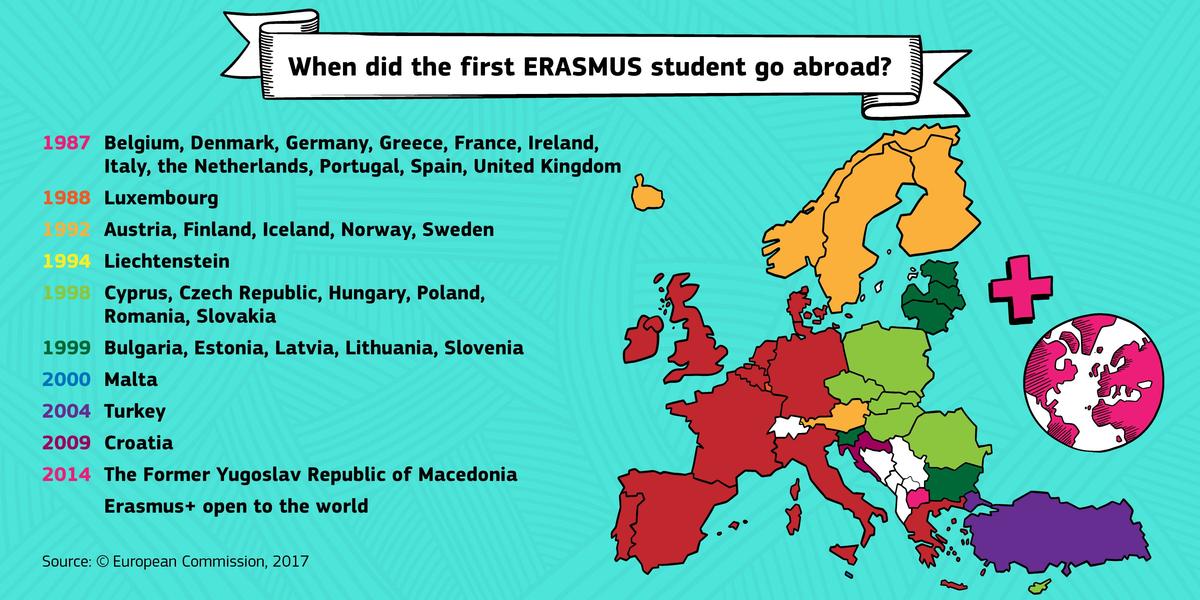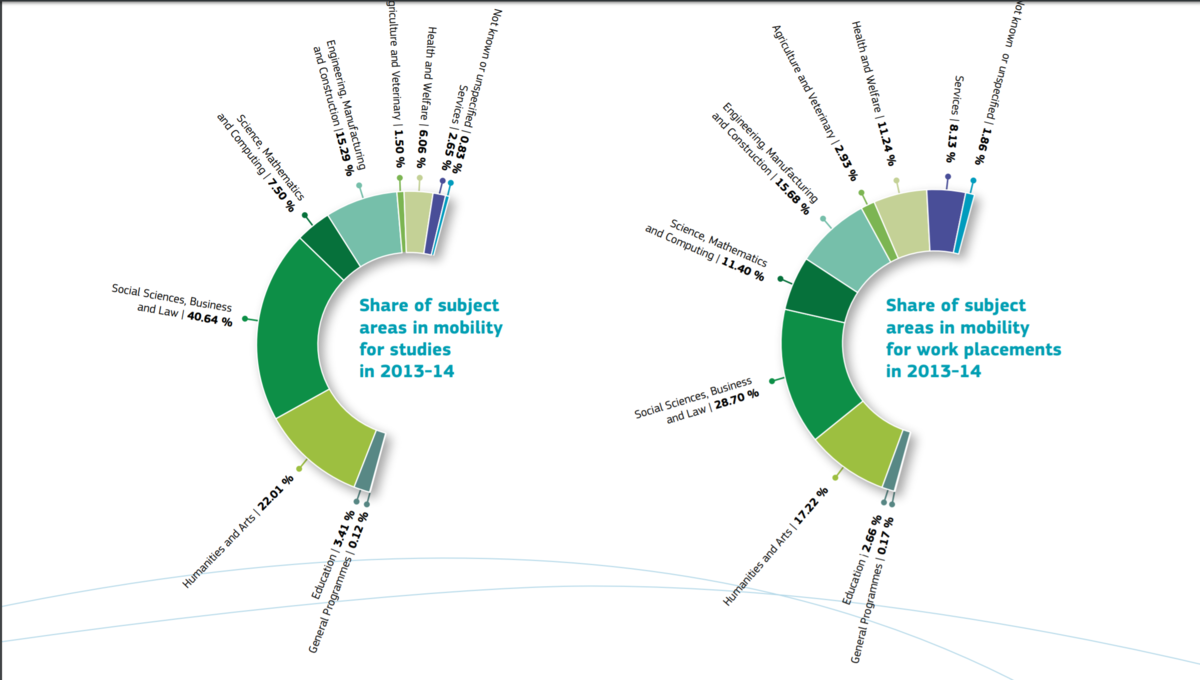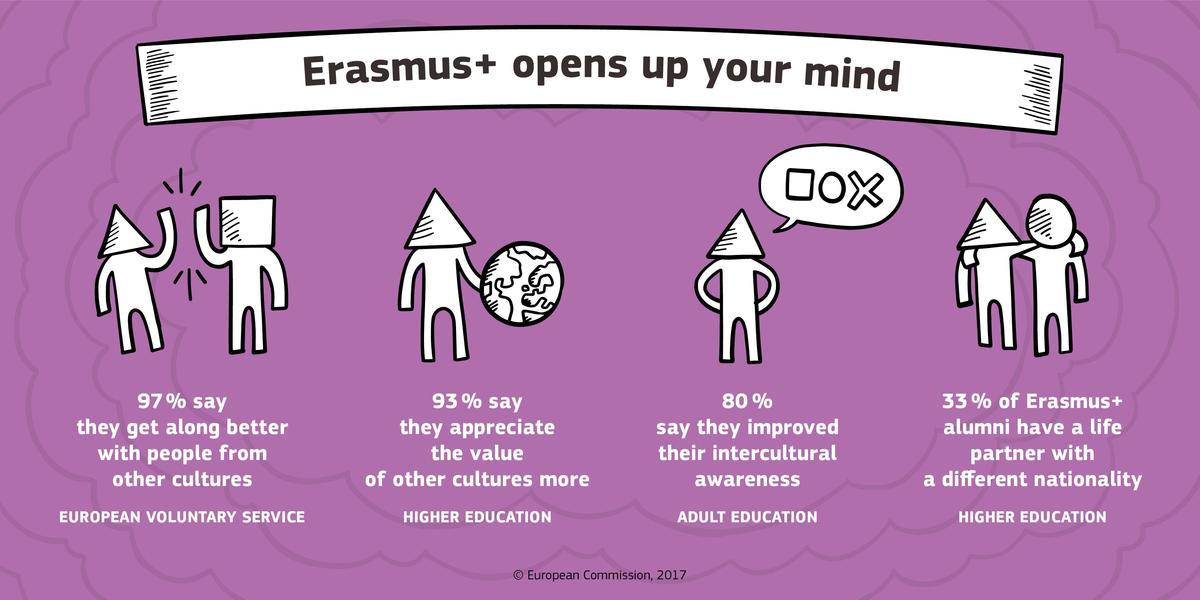The Erasmus Academic Exchange Program Turns Thirty (2017)
Abstract
In order to promote cooperation between European universities as well
as student exchange within the member countries, the European Union
founded the Erasmus program in 1987. Named after the Dutch scholar
Desiderius Erasmus of Rotterdam (d. 1536) and short for European
Community Action Scheme for the Mobility of University Students, the
project was expanded in 2014: measures for cooperation in higher
education, school education, vocational and adult education, as well as
youth and sports promotion, now fall under Erasmus+ or Erasmus
Plus.
Erasmus+ is considered a European success story: by 2017, the
project had supported more than four million students, hundreds of
thousands of them from Germany alone. Universities in Spain and Germany
were particularly popular destinations, followed by France, the UK and
Italy.
Source
Source: European Commission
© European Commission 2017.


